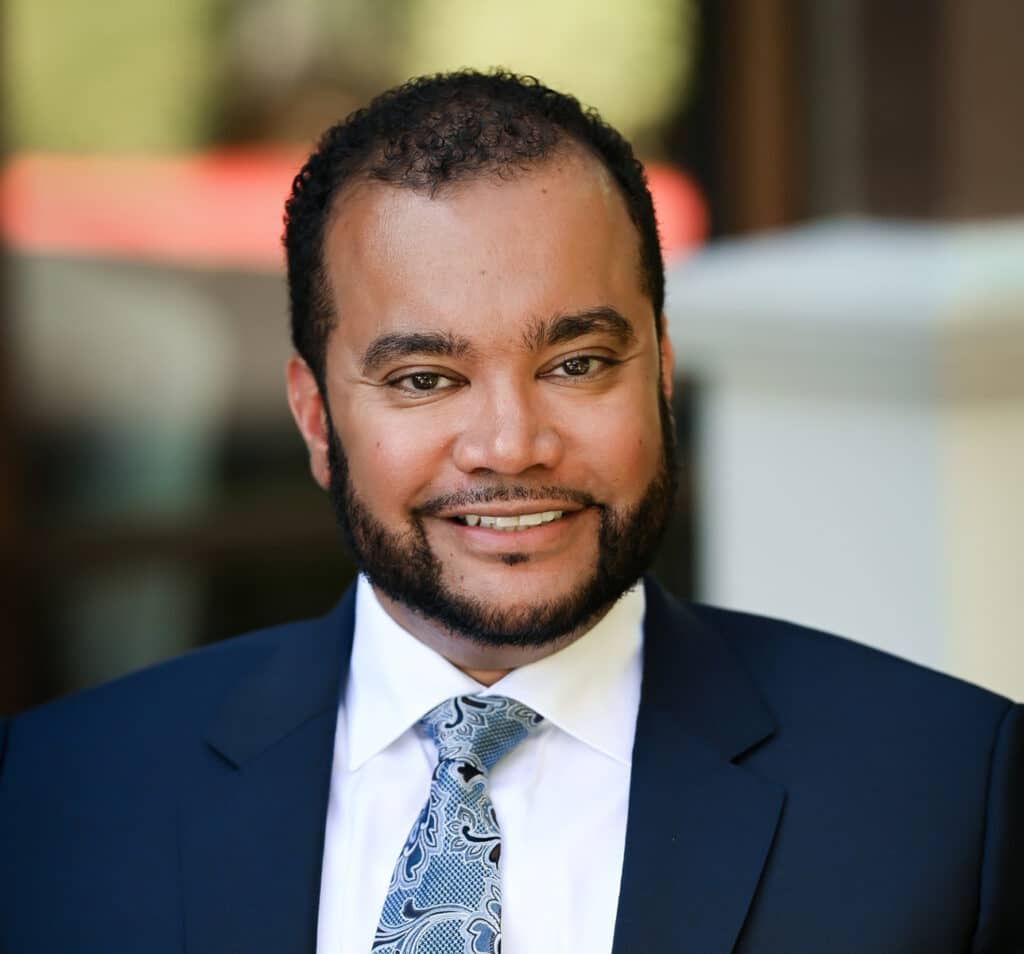Community Government
Election profile: Caldier vs. Macklin for state House
Republican state Rep. Michelle Caldier and Democratic challenger Matt Macklin both have professional experience in health care. So it should be no surprise that each identified health-related issues as among their top reasons for seeking office.
Caldier, a dentist in her pre-Legislature career, is running for a fifth term representing the 26th Legislative District in Olympia. She recently moved from Port Orchard to Gig Harbor.
Macklin, an attorney who previously worked as a nursing home administrator, is seeking office for the first time. He lives in Port Orchard.
The two are facing off for the 26th District’s Position 2 in the House of Representatives. The general election is Nov. 8, but the Pierce County Auditor’s Office mailed ballots to voters last week.
Health care
Both candidates independently used the word “monopoly” to describe the peninsula’s health care situation.
Virginia Mason Franciscan Health System owns both hospitals on the west side of the Tacoma Narrows Bridge — St. Anthony in Gig Harbor and St. Michael in Silverdale. The system has been beset by problems recently, including a ransomware attack, a nursing shortage and ambulances being diverted from the Silverdale hospital to Gig Harbor.

Matt Macklin
“We’re in the middle of a monopoly. Other than the Franciscan operation, we’re in kind of a health care desert,” Macklin said. “What we need to do is, we need to invest in attracting other health-care systems as well as invest in regulations that will hold large corporations, that haven’t been held accountable, accountable.”
Caldier said Franciscan systematically acquired independent medical practices, then required that certain ambulatory surgical procedures be done in its hospitals — a more expensive setting. “Almost overnight the cost of health care in my district went up double digits, because of this monopoly,” Caldier said.
The state Department of Health currently has few tools to regulate hospitals, Caldier said.
“The only thing that they can really do is shut down the doors. Which the Department of Health doesn’t want to do because we need the hospitals,” she said.
Public Affairs Forum Macklin & Caldier from Gig Harbor Chamber of Commerce on Vimeo.
Caldier on eviction moratorium
Caldier pointed to her efforts to negotiate an end to the state’s eviction moratorium, which prevented landlords from evicting tenants who were delinquent on their rent during the Covid-19 lockdown.
She called it a “compassionate end” to the moratorium. She said the moratorium put pressure on landlords, many of whom still had to pay mortgages on investment properties while forgoing rental income.

Michelle Caldier
“People were not paying their bills, they were not paying rent,” Caldier said. “A lot of renters thought that the government told them they didn’t have to pay rent. That’s what we heard from renters. They didn’t realize that they were still accruing a bill.”
Macklin on mental health crisis
Macklin has spoken repeatedly on the campaign trail about the need to reform Washington’s mental health treatment system. The lack of a coordinated mental health response system ties into issues of crime and addiction, he said.
“A lot of our current problems and headaches are directly connected to our lack of mental health care,” Macklin said. He called for “funding mental health care in a preventative, outpatient capacity” as well as providing training for first responders to identify and assist people experiencing crises.
“We need to provide resources to law enforcement to do the job and do it well, by providing trained crisis responders instead of dumping it at our last line of defense,” Macklin said.
Importance of the 26th District
Both candidates referred to themselves as moderates.
Caldier emphasized her efforts as a Republican to work with legislative Democrats, who hold the majority in both houses in Olympia. Macklin refers to himself as a “true moderate” whose views won’t always line up with party orthodoxy.
That’s in keeping with the 26th‘s status as a swing district. The district — which encompasses Gig Harbor, the Key Peninsula, southern Kitsap County, Port Orchard and part of Bremerton — is represented by two Republicans in the state House (Caldier and Rep. Jesse Young of Gig Harbor) and a Democrat in the Senate (Emily Randall of Bremerton).
Macklin called the 26th a “purple district. I see us as not having the same level of group-think as some other regions of the state.”
Caldier agreed that the 26th could go either way. She emphasized the importance of having Republican voices in an Olympia largely in the hands of Democrats.
“I don’t think it’s healthy to have either party having full reign on everything,” she said. “It’s healthy to make sure that you’re listening to the opposition …. to make sure that whatever policies we implement in the state, that they’re well-thought-out and you’re listening to dissenting voices.”
Question & answer
Gig Harbor Now asked both candidates for written responses to five questions, covering the issues of public safety, transportation, education, climate change and the economy. Their responses are printed verbatim below.
Public Safety
The 2021 Blake Decision effectively ruled the state’s felony drug possession laws unconstitutional. Subsequent legislation made drug possession a misdemeanor, but required people to be offered treatment for their first two offenses. What changes in drug possession laws and enforcement would you support in the Legislature?
Caldier: We need to make hard drugs illegal again. Individuals with substance abuse problems who violate the law should be given two choices: rehabilitation treatment or jail. We also need to create better supports for people when they exit treatment to prevent a relapse.
Macklin: Our communities are facing an ongoing drug epidemic and public health crisis. Too many families have lost a loved one to drug use. It’s vital that we treat addiction as a medical need first, and then the criminal activity that may stem from it. We need to invest in accessibility of addiction treatment options and other mental health services to support those struggling with addiction, while also ensuring communities are safe and those who do not seek help are held accountable. The current approach is not working.
Transportation
What would be your top transportation priority in the 2023 and 2024 legislative sessions?
Macklin: Modernizing state ferry capacity, along with improving infrastructure so that our more rural communities can easily access work, schools, medical care centers, and more. This will entail increasing public transportation, and fixing roads and bridges.
Another barrier to modernizing our transportation system is staffing, and increasing workforce capacity. Public transportation can become a vital provider of jobs for our area if they provide generous benefits, work-life balance, union-led apprenticeships, and more job features that lead to retaining a qualified workforce. Our local community needs a place at the table to weigh in on the route and frequency needs.
Caldier: One of my top transportation priorities is to fund fish culvert projects and bike pathways from the operating budget instead of the transportation budget. This would free up the budget for funding road projects and congestion-relief efforts. Once that is accomplished, we can fund integral projects such as Wollochet and 302 for the district.
Education
After the Legislature approved a 5.5 percent cost of living adjustment for teachers this year, are teachers and other school staff making the right amount of money? Should teachers and other school staff be paid more to attract and retain the best candidates?
Caldier: Since I have been in the legislature, we have close to doubled the per-pupil funding for K-12 education and drastically increased the pay scale for educators. When I speak with teachers, they tell me their pay is adequate after the increases, but they no longer want to teach after the struggles they encountered with virtual learning and the negativity they have received from the public.
Macklin: Yes, the pandemic showed how under-supported teachers are, and we must remedy that. Without teachers, our school systems will suffer and impact post-education prospects for our children. Therefore we must do what we need to retain exceptional teachers if we want Washington to continue to grow in many industries.
Climate
Do you support recent steps to reduce greenhouse gas emissions, such as the state’s “cap-and-invest” initiative, and the 2030 target to phase out sales of new gasoline-powered cars?
Macklin: We must continue to partner with stakeholders across various industries – from agriculture to indigenous communities, to environmental nonprofits and building trade workers and homeowners and renters. The climate crisis affects all of us, and we need to work together to create equitable solutions and protections. Increasing public transportation capacity and adding electric vehicles, increasing accessibility and use of nonrenewable energy sources such as solar, building up climate resiliency especially in rural communities, and developing a future-minded workforce via trade apprenticeships are some of the critical avenues we can take to address climate change.
Caldier: I do believe we need to work on efforts to improve our environment, but did not support cap-and-trade legislation. This is due to the huge increase of costs to families who are struggling to recover from the pandemic. I also did not support the ban on combustion vehicles, as we do not have the supply to replace gas and hybrid automobiles, nor the infrastructure with the grid or charging stations. That is, of course, if people could afford to easily buy an electric car to replace their current gas-powered sedan.
Economy
What can the state do to ease the impact of inflation?
Caldier: The best thing that government could do is to allow businesses to thrive, create jobs and offset the tax burden we place on individuals. When we discovered we had a budget surplus, we should have returned a portion of the taxes people paid instead of creating more underfunded programs.
Macklin: We need to ensure our economy is working for everyone, not holding them back. Right now, inflation impacts every corner of our lives. The legislature can’t fix inflation, but it can support working families by addressing underlying economic conditions that make it hard to survive; creating incentives that increase the supply of housing that is affordable in the communities where people already live; affordable, accessible, and comprehensive healthcare, especially prescription drugs; and investing in our education system. It’s time to deliver education that works for our kids’ future. Four-year college isn’t the only way to earn a dignified living that you can enjoy.

Michelle Caldier, left, and Matt Macklin
